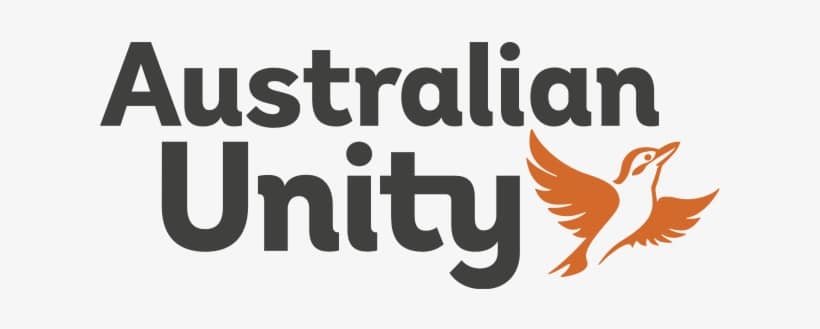Home > Health Insurance > Private Health Insurance For 31-Year-Olds
Private Health Insurance For 31-Year-Olds
Find out why health insurance is important for 31-year-olds and compare quotes through Savvy.
Author
Savvy Editorial TeamFact checked



We’ve partnered with Compare Club to bring you a range of health insurance policies to help you compare them side by side.
Most of us think of 18 and 21 as major milestone ages in our young lives, but do you know that as far as private health insurance in Australia is concerned, 31 years old has become the most important age? You can find out why it’s so crucial here with Savvy.
You can find and compare private health insurance policies suitable for people turning 31 years old from a panel of leading Australian insurers through us. Our free quote service can help you consider health cover offers quickly and easily, so start comparing and get your insurance sorted out through Savvy.
Why is 31 such an important age for private health insurance?
There are two major reasons why the age of 31 is so relevant to health insurance:
It’s the maximum age you can remain on a family health insurance policy
The first reason involves recent legislation about the maximum age dependants are allowed to remain on family health policies. Changes were made by the Australian Government to health insurance legislation in 2021, which raised the maximum age that dependants still living at home with their parents could remain on a family health cover policy from 25 to 31. This change started to be implemented by some health funds in 2022 and into 2023. However, this is a voluntary measure, so it isn’t compulsory for funds to offer cover for dependents up to aged 31.
It's the Lifetime Health Cover loading cut-off
The second reason involves the Lifetime Health Cover (LHC) loading, which is an extra amount you may have to pay for your health insurance for ten years if you don’t have health cover by the time you reach 31. This loading (which is 2% for each year you’re aged over 31 and uninsured, capped at a maximum of 70%) has been around since it was introduced by the government in July 2000. The vital date to calculate your LHC obligation is July 1 after your 31st birthday, which is known as your LHC base day. The LHC loading must be paid for ten years, which is why many Australians carefully consider purchasing health insurance before they turn 31.
What health insurance do I need to avoid paying the Lifetime Health Cover loading?
The definition of ‘adequate’ hospital cover to avoid the LHC loading after you turn 31 is:
- Basic hospital cover with a maximum excess amount of $750 for single policies
- Basic hospital cover with a maximum excess amount of $1,500 for couples and families
- The insurance must be provided by an Australian registered health insurer
There is no minimum cover requirement for extras cover.
Is anyone exempt from paying the LHC loading?
Yes – there are exemptions available from paying the LHC loading. These include:
- if you were born before July 1, 1934
- new migrants who have just arrived in Australia are exempt from paying the LHC loading for 12 months from the anniversary of their full Medicare registration
- if you were aged over 31 on July 1, 2000, and were overseas on this date (when the LHC loading was introduced), you may be deemed to have held adequate health insurance and will not have to pay the loading
- if you were overseas on July 1 following your 31st birthday, you’re required to purchase hospital cover by the first anniversary of the day you return to Australia
- Department of Veterans’ Affairs Gold Card holders and widows/widowers of DVA veterans
- serving Australian Defence Force members and their adult dependants are considered to have adequate health cover, so they’re also exempt from the loading
What are permitted days of absence without hospital cover?
All Australians are permitted a total of 1094 days (three years less one day) without health cover in their lifetime, as long as they had health cover on their LHC base day. This makes allowances for short gaps when transferring from one health fund to another, as well as periods of absence from Australia for study or work. If you use up your permitted days, you'll pay an additional 2% on top of any previous loading when you re-join hospital cover.
If you go overseas for at least one continuous year and cancel your health insurance during this time, the period you were overseas doesn’t count towards your permitted days of absence. Additionally, if you apply to your health fund to suspend your membership because you are going to be overseas, this suspension period also doesn’t count towards your permitted days of absence.
How do I compare health insurance policies as a 31-year-old?
Areas to compare when you’re considering your hospital cover health insurance include:
- Cost – we all want the cheapest health insurance policy we can find, but it’s important to make sure the policy you choose offers the coverage you’re looking for
- Level of cover – choose from basic, bronze, silver or gold hospital cover policies. The more the policy costs, the higher the tier of cover you’ll get and the more clinical conditions will be covered by your health policy. The same applies to extras cover, though these policies aren’t as strictly defined when it comes to levels of cover
- Inclusions and exclusions – make sure you know exactly what areas of treatment are included and excluded in the policy you’re considering
- Excesses and co-payments – you may be able to choose how much excess you have to pay if you're admitted to hospital. This can range from zero to $750. The higher the excess you choose, the cheaper your policy may be, with the same applying to co-payments
- Waiting periods – check out how long the waiting periods are before you can make a claim on your policy if you haven’t held health cover previously
- Additional bonuses – some health funds offer additional incentives to take out a hospital cover or combined hospital and extras policy. These can include waived waiting periods, free weeks’ cover, gym memberships, fitness and wellness programs, rewards points which can be used for shopping, or gift cards
By comparing policies through Savvy, you’ll be able to look at many of these aspects as you compare health insurance quotes side-by-side. You can even request a call-back and get help from a health insurance specialist to help you settle on a policy appropriate for your needs as a 31-year-old.
Types of health insurance
This can help you pay for medical treatment if you need to be admitted to hospital. It can help cover the cost of your admission or accommodation and the fees charged by doctors, surgeons and anaesthetists. It can also cover other costs associated with a stay in a private hospital.
This helps cover the costs of health care treatments outside a hospital setting which aren’t covered by Medicare. This can include major and minor dental treatment, orthodontics, hearing aids, physiotherapy, glasses, contact lenses and podiatry (in most cases with annual limits).
This is a standard health insurance policy designed for a single person, rather than being tailored to cater to the needs of a couple or family. It may include hospital cover plus extras, or either of these types of insurance on their own, depending on what you're after for your health cover.
A family health insurance policy is designed for a family unit including dependent children who may reach up to 31 years of age with some insurers. It offers private health insurance suitable for the whole family and may include shared limits for all members included in your policy.
A health insurance policy aimed at seniors is designed to appeal to people who are in the second half of their life. These are often specific Silver Plus policies that offer the same cover as other health insurance policies, with the exception that pregnancy and childbirth cover may not be included.
Visitors who are in Australia on a temporary basis for travel, work or study may be able to take out Overseas Visitors Health Cover (OVHC). Many visas issued in Australia come with a requirement to take out this type of insurance, which covers visitors who may not be covered by Medicare.
Ambulance cover is generally available either packaged into your private health insurance or on its own as a separate policy or subscription. By having this protection, you could be covered for all eligible ambulance travel in Australia (subject to your insurer's terms and conditions).
The cheapest and most barebones form of private hospital insurance, this can include cover for rehab, in-hospital psychiatric services and palliative care. Having this policy will enable you to avoid paying the Medicare Levy Surcharge (MLS) and Lifetime Health Cover (LHC) loading.
Bronze hospital cover is a step up from basic insurance, including 18 further clinical categories such as ear, nose and throat, bone, joint and muscle, digestive system, joint reconstructions, gynaecology and chemotherapy, radiotherapy and immunotherapy for cancer.
Silver hospital cover is the second-most expensive type of policy and offers the second-most clinical categories. On top of what's offered by basic and bronze cover, it also includes heart and vascular system, lung and chest, blood, hearing device implantation and dental surgery.
The highest level of private hospital insurance available in Australia, gold policies can offer cover for pregnancy and birth, weight loss surgery, assisted reproductive services and insulin pumps on top of all the categories provided by silver, bronze and basic hospital insurance.
Why compare health insurance through Savvy?
100% free service
Our comparison tool doesn’t cost you a cent, allowing anyone to compare offers from trusted insurers around Australia for free.
Compare policies online in one place
You can consider the inclusions, premiums, benefits and other key factors easily with us, whether you’re at home or on the go.
Trusted insurers
Considering offers from trusted insurance providers can help give you peace of mind that you’re comparing high-quality policies.
Frequently asked questions about health insurance for 31-year-olds
Some health funds will allow you to place your health cover on hold for the duration you’re going to be overseas, but it isn’t compulsory for them to offer this option. Ask your insurer if they allow policy suspension and what the terms and conditions are.
Yes – the new legislation introduced by the Australian Government in 2021 permitted disabled dependants to remain on their parents’ health cover with no age restriction. As such, the 31-year-old age limit no longer applies to dependants living with a disability.
If you earn over $90,000 p.a. and don't have hospital cover private health insurance, you may have to pay the Medicare Levy Surcharge on top of the Medicare Levy. This can vary from 1% to 1.5% of your taxable income, with the percentage applying to you depending on how much you earn (correct as of March 2023).
If two people with different LHC loadings apply for a couples health insurance policy together, the LHC loading can be averaged out between them. For example, if one half of the couple has a 10% loading and the other has no loading, the LHC loading can be averaged to 5%, which is the amount that will be added on top of the standard price of their couples hospital policy over the next ten years.
Helpful health insurance guides
Looking for health insurance to cover your condition or treatment?
Read one of our helpful guides on a range of different ailments and potential hospital or extras treatments to help you find out if they're covered.
Disclaimer:
Savvy is partnered with Compare Club Australia Pty Ltd (AFS representative number 001279036) of Alternative Media Pty Ltd (AFS License number 486326) to provide readers with a variety of health insurance policies to compare. Savvy earns a commission from Compare Club each time a customer buys a health insurance policy via our website. We don’t arrange for products to be purchased from these brands directly, as all purchases are conducted via Compare Club.
Savvy’s comparison service is provided by Compare Club. Compare Club compares selected products from a panel of trusted insurers and does not compare all products in the market.
Any advice presented above or on other pages is general in nature and doesn’t consider your personal or business objectives, needs or finances. It’s always important to consider whether advice is suitable for you before purchasing an insurance policy.
For any further information on the variety of insurers compared by Compare Club or how their business works, you can read their Financial Services Guide.










